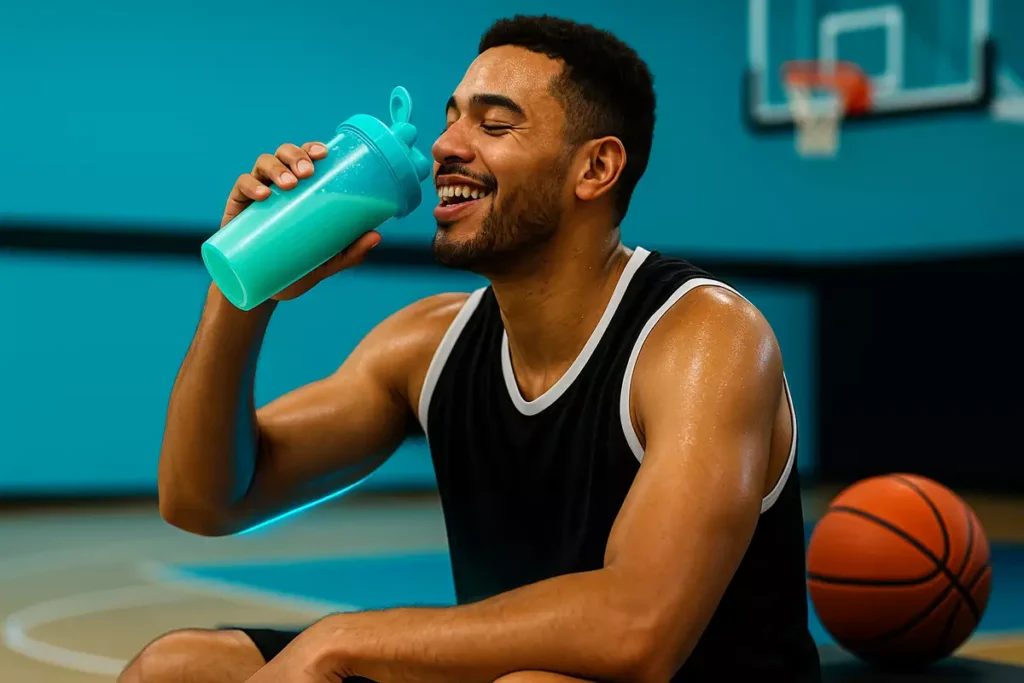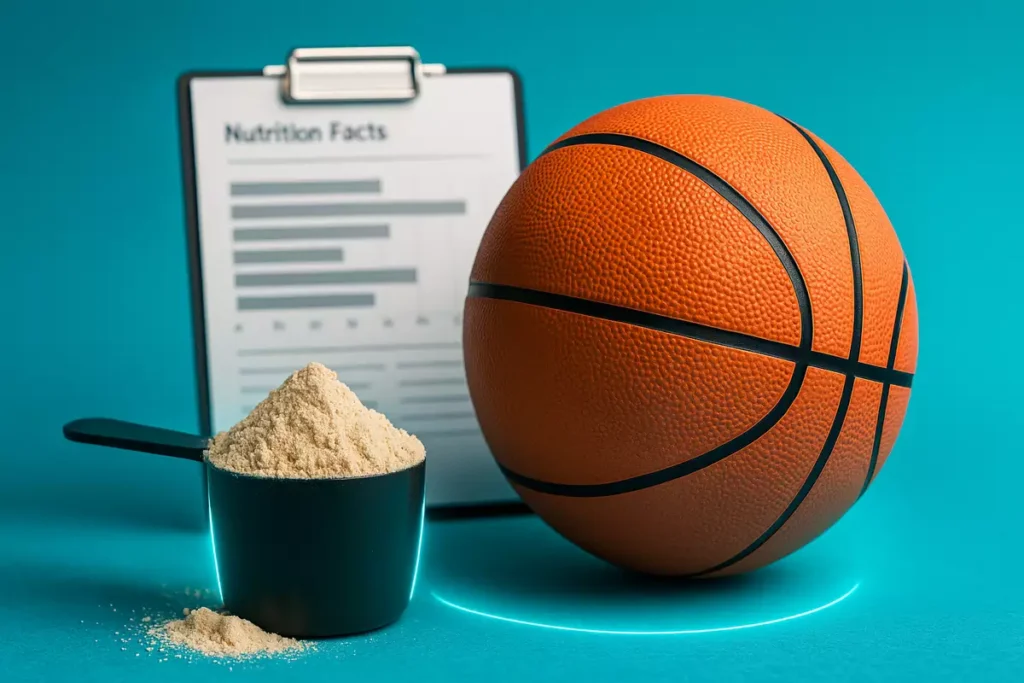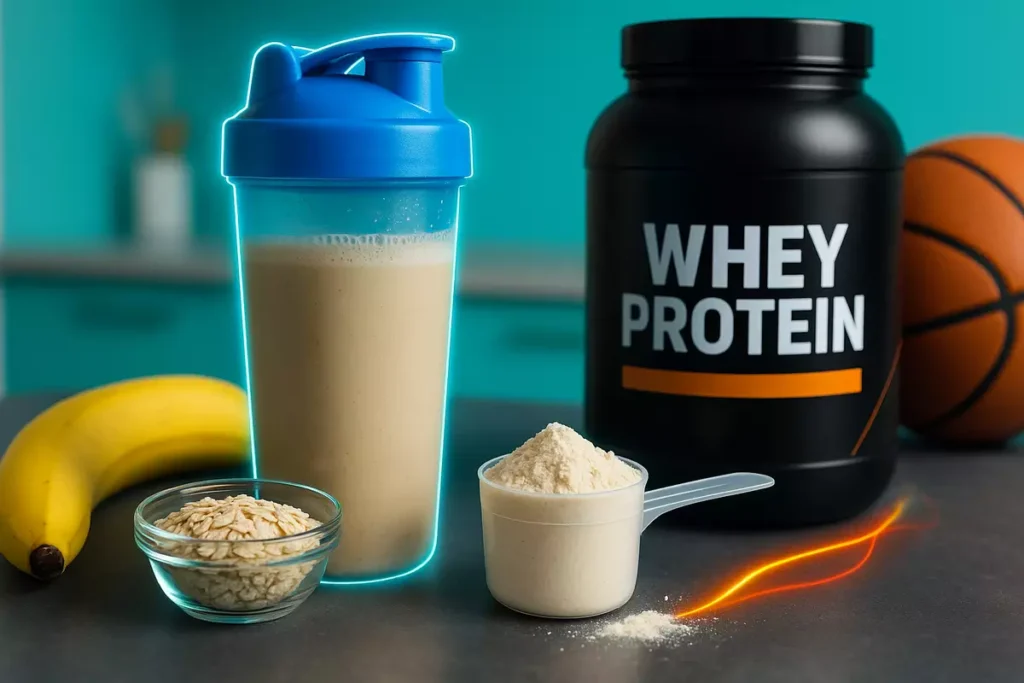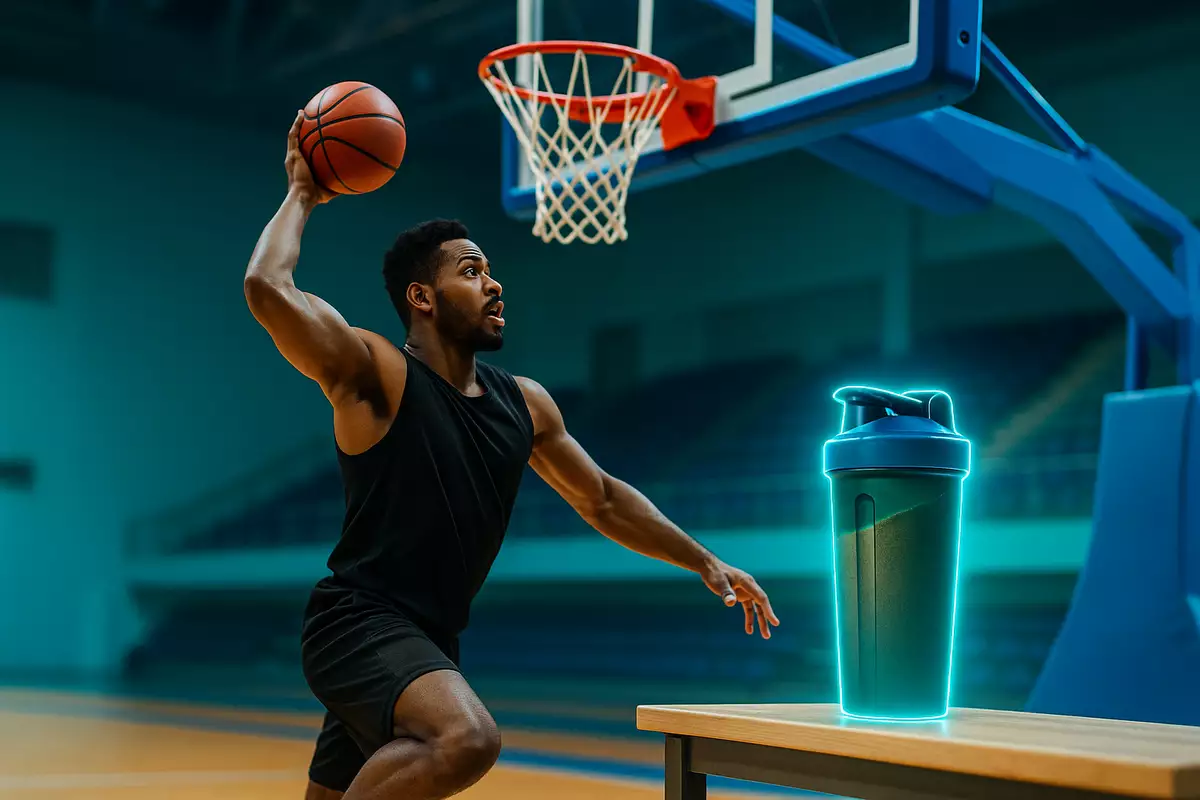Basketball pushes your body to its limits—sprints, jumps, and nonstop action drain your muscles and energy fast. Recovery is the real challenge.
That’s where whey protein steps in. It helps repair muscle damage, speeds up recovery, and fuels strength without adding unwanted bulk.
For basketball players who want to stay explosive until the final buzzer, whey protein can be the difference between fading out and finishing strong.
Table of contents
Why Whey Protein Matters in Basketball
If you’re a basketball player, you know how demanding the sport is—sprints, jumps, explosive movements, and long games that push your endurance to the limit.
One of the biggest challenges is recovery. Sore muscles, fatigue, and energy dips can slow you down on the court.
Here’s the quick answer: Yes, whey protein helps basketball players improve recovery, muscle repair, and overall performance. It’s not a magic pill, but it’s a practical tool that supports your training and game-day efforts.
(For deeper insights into common misunderstandings, you can also read whey protein myths vs facts.)
Key Benefits of Whey Protein for Basketball Players

From my own experience as a coach and athlete, whey protein has been a game-changer.
- Faster Recovery: After adding whey protein to my post-training routine, my muscle soreness reduced, and I bounced back quicker for the next session.
- Supports Lean Muscle Growth: Basketball isn’t about bulky muscles—it’s about lean, explosive strength. Whey protein helps build and maintain the right kind of muscle mass.
- Improves Endurance: I noticed more consistent energy levels during back-to-back training days, which is crucial when games are packed close together.
For example, one of my clients, Daniel from Spain, was playing semi-pro basketball and constantly complained of sore legs. After introducing a whey protein shake post-practice, his recovery improved dramatically, and within weeks he felt lighter and more explosive on the court.
(If you’re also curious about using whey protein in different phases, check out the guide on the best whey protein for cutting phase.)
When to Take Whey Protein
Timing makes a huge difference.
- Post-Training or Post-Game: This is the golden window for recovery. A simple whey shake with water or milk helps repair muscles quickly.
- Pre-Training Fuel: If you haven’t eaten much, a light whey shake with a banana can give you energy without feeling heavy.
- Daily Nutrition: On lighter days, I like to add whey to oatmeal or yogurt to keep my protein intake steady.
Alexandra from Canada, a college-level player, struggled with heavy legs in the fourth quarter. Once she started taking a post-game whey shake with some carbs, her energy late in games noticeably improved.
(Wondering how long your tub of protein lasts? Here’s a breakdown of whey protein shelf life after opening.)
How Much Whey Protein Do Basketball Players Need?

Most basketball players need 1.6 to 2.2 grams of protein per kilogram of body weight daily.
Whey protein is simply a convenient way to reach that target. For example, if you weigh 80 kg, you’re looking at around 130–170 g of protein per day.
One scoop of whey usually provides 20–25 g of protein, which is perfect to fill in the gaps when whole meals aren’t enough. Personally, I usually take one shake post-training and sometimes another with breakfast if I know my day will be hectic.
(If you’re a younger athlete, you might find this helpful: is whey protein safe for teenagers?.)
Best Types of Whey Protein for Athletes
Not all whey proteins are the same.
- Whey Isolate: My personal choice. It digests faster, has fewer carbs and fats, and doesn’t upset my stomach. Great for lactose-sensitive players.
- Whey Concentrate: A budget-friendly option, still effective but may cause bloating for some athletes.
When I first started with whey concentrate, I had issues with bloating. Switching to isolate solved that problem, and I’ve stuck with it ever since.
If you’re confused about which type is right for you, here’s a detailed guide on choosing the right whey protein.
Practical Tips for Using Whey Protein

- Keep it Simple: Post-training, just mix it with water or milk.
- Add Carbs: Combine whey with a banana, oats, or even rice cakes. Carbs plus protein = faster recovery.
- Stay Hydrated: Don’t forget water and electrolytes, especially after intense games. Whey helps muscles, but hydration fuels performance.
I tell my players this: think of whey as your backup plan. Whole foods like chicken, eggs, and fish come first, but whey fills in the gaps when you’re on the go.
(For different groups, check out whey use in senior athletes or even post-surgery recovery.)
Trainer’s Final Takeaway
Basketball demands explosive power, quick recovery, and consistent energy.
Whey protein won’t replace a solid diet, but it’s one of the simplest and most effective supplements for basketball players.
From my personal journey and the stories of athletes I’ve coached, whey protein consistently helps with recovery, strength, and performance on the court.
If you’re serious about basketball, consider making whey a part of your routine. It’s affordable, practical, and—when used smartly—can be the difference between dragging through the fourth quarter and finishing the game strong.



Leave a Reply